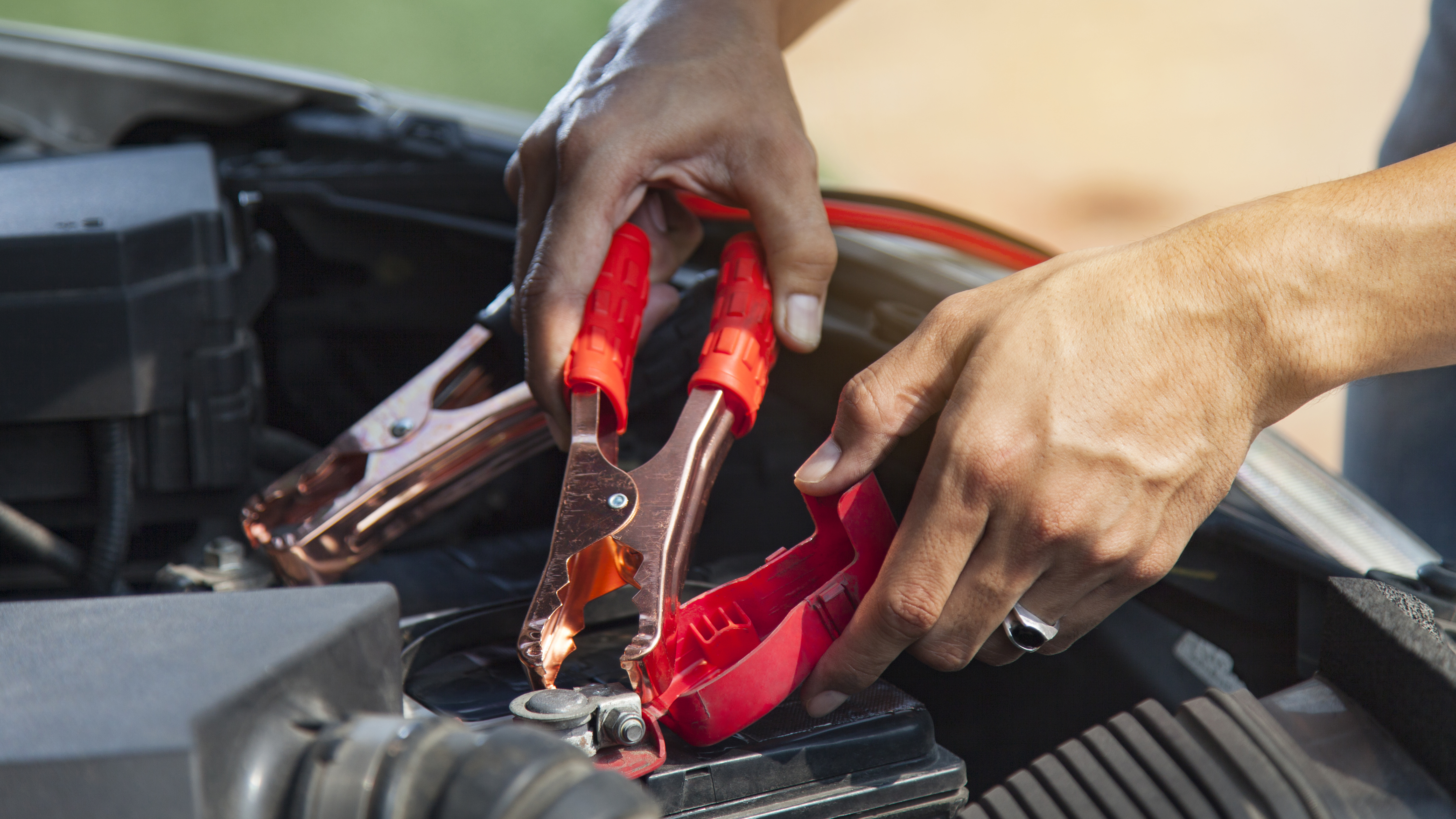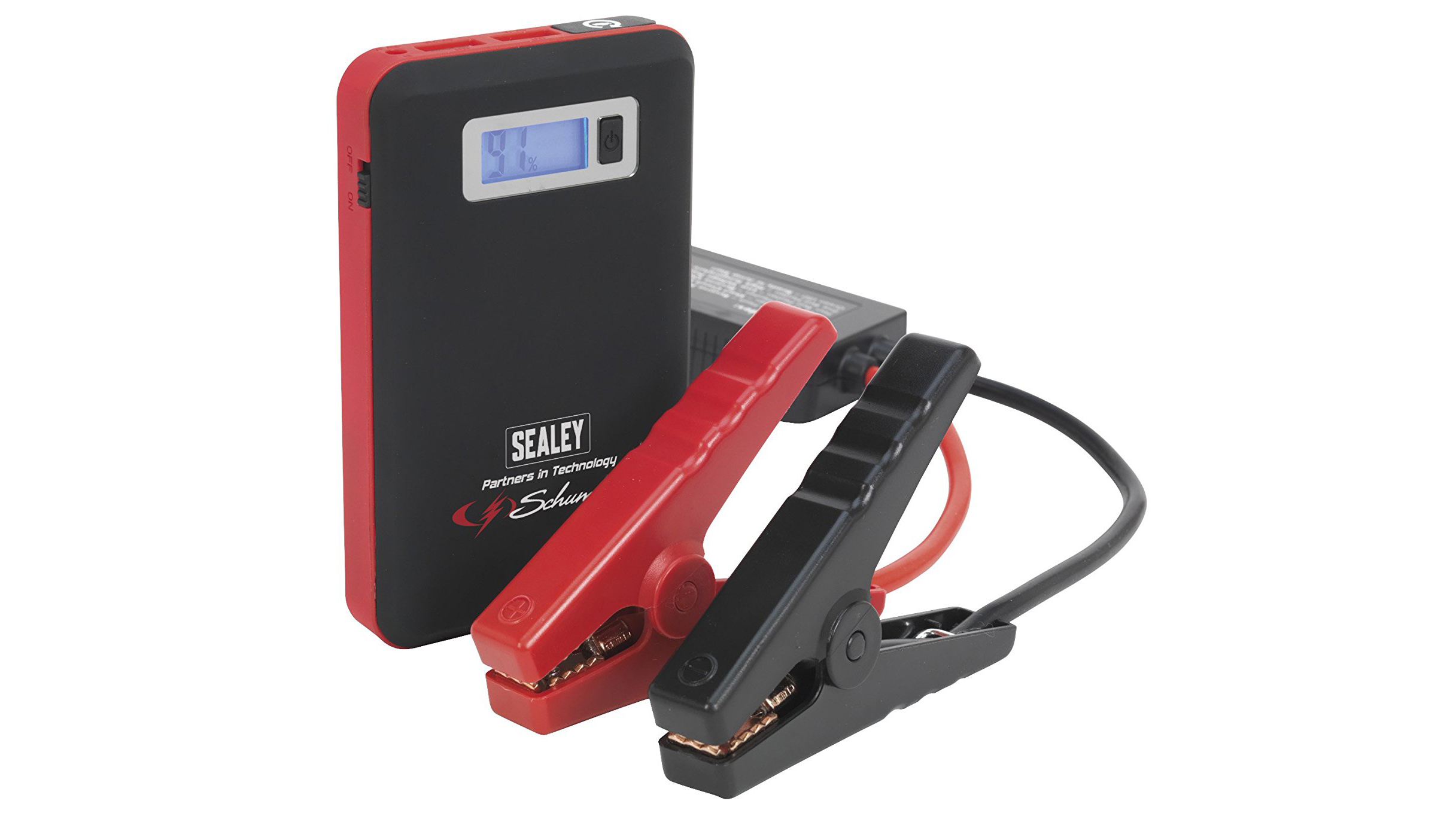Black & Decker Bdv012 Car Jump Starter

(Image credit: Getty)
If you turn the key or press the start button and your car shows no signs of life, then the battery might well be dead. This can happen relatively easily with some cars, and especially older vehicles that are driven less regularly, as the battery loses charge when not used often.
As well as the engine not even attempting to start, signs of a dead battery also include dim or non-functioning headlights, and your car may also display a warning message on the dashboard. If the headlights and all other systems appear to be working as normal, but the engine won't turn over, this would suggest a different problem.
But let us assume it is indeed a dead battery preventing your car from starting. To fix the situation you either need some jumper cables and the help of another vehicle, or one of the best portable jump starters. For this article, we will focus on the latter, which come in all shapes and sizes and are often relatively inexpensive.

(Image credit: Sealy)
The jump starter works by connecting to your car's dead battery, then uses its own battery to give the vehicle enough power to run the starter motor and fire the engine into life. Once running, the engine will recharge the car battery via the alternator, so that next time it should start as normal.
Before you get started, make sure the jump starter is fully charged. You should also remove any metal jewellery, including watches, and any clothing that might get caught in the engine bay, like a tie or scarf. Now simply follow these instructions:
- Ensure the car is switched off, open the bonnet and locate the battery. You might want to check in the vehicle owner's handbook if the battery isn't immediately obvious. The handbook will also help you identify the positive and negative terminals of the battery.
- Place the jump starter on the ground and fully extend its red (positive +) and black (negative –) cables.
- Connect the red lead of the jump starter to the red positive (+) terminal of the car battery. There should be space for the lead to grip onto the terminal. Do not disconnect anything from the car battery that was already attached.
- Connect the black lead of the jump starter to an earthing point on the car. Ideally this should be an unpainted metal part of the engine block or chassis. Do not connect anything to the black negative (–) terminal of the car battery.
- Switch on the jump starter as per its instructions
- Attempt to start your car in the usual way. The vehicle might not start immediately on the first attempt, but if everything is working correctly it should fire into life after a couple of tries. It is worth waiting for a minute or two between each attempt. If it doesn't start after a couple of tries, then something else is wrong with the vehicle or the jump starter isn't working.
- Once started, keep the car running with the jump starter attached for five minutes or so.
- With the car still running, switch off the jump starter but leave it connected and allow the car to run for another five minutes. This will help put some charge back into its battery.
- Turn off the engine and remove the leads of the jump starter. You should disconnect the black negative lead first, followed by the red positive lead.
- Start the car again and it should fire up as normal without any assistance from the jump starter. You should now take the jump starter inside and charge it back up as per its own instructions, ready to be used again.
Liked this?
- Best jump starter: bring your car back to life with these portable jump starters
- Best dash cam: top car dash cams tried and tested

Alistair is a freelance automotive and technology journalist. He has bylines on esteemed sites such as the BBC, Forbes, TechRadar, and of best of all, T3.
Black & Decker Bdv012 Car Jump Starter
Source: https://www.t3.com/features/how-to-jump-start-a-car-using-a-jump-starter